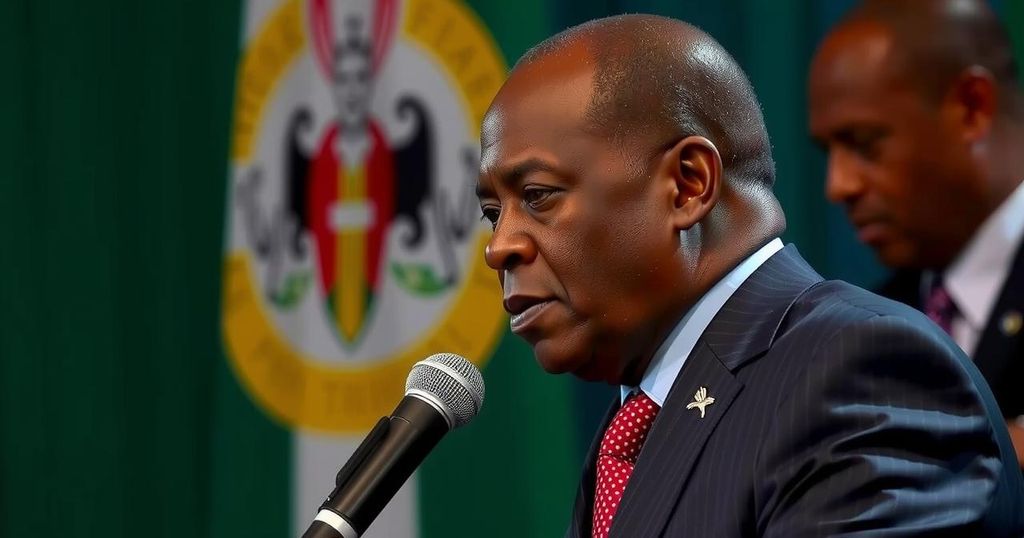Kenya’s Deputy President Rigathi Gachagua was impeached by the Senate on October 16, 2024, following a significant vote on multiple charges, marking a historic first under the revised 2010 constitution. Gachagua was unable to defend himself in person due to health issues, prompting legal challenges from his team. The charges included threats to judges and divisive politics, but he was acquitted of corruption and money-laundering. The political fallout suggests increased uncertainty in Kenya’s governance as President Ruto must now appoint a new deputy within 14 days.
In a groundbreaking development in Kenyan politics, Deputy President Rigathi Gachagua was ousted from office after the Senate voted for his impeachment on five of eleven charges, following an overwhelming decision by the National Assembly. This event marks the first instance of such a removal since the enactment of Kenya’s revised constitution in 2010, signifying a dramatic political upheaval. Gachagua’s impeachment stemmed from serious accusations, including threats against judges and promotion of ethnically divisive rhetoric, although he was acquitted of corruption and money-laundering charges. The impeachment process unfolded dramatically on October 16, 2024, with Gachagua unable to attend the proceedings due to health issues, being hospitalized with chest pains. Despite his absence, the Senate proceeded with the hearings, despite protests from his legal team who argued for his right to a defense. Gachagua, who played a pivotal role in President William Ruto’s election success in 2022, has publicly denied the charges against him, asserting that the impeachment reflects a deeper political betrayal. As political tensions soar amid escalating public unrest over contentious tax increases and resulting protests, the future direction of Kenya’s government remains uncertain. President Ruto is tasked with nominating a new deputy within the next two weeks.
The impeachment of Rigathi Gachagua is a significant political event in Kenya, representing an unprecedented move within the framework of the country’s governance. Following the 2010 constitutional overhaul, the mechanisms for impeachment were established, but Gachagua’s removal under these terms stands alone in its historical context. The political fallout stems from Gachagua’s initial support of President William Ruto, which became strained over time due to allegations of corruption and political machinations. The backdrop of increasing civil unrest relating to fiscal policies further complicates the political landscape, leading to increased scrutiny of government officials and their conduct.
In summary, Deputy President Rigathi Gachagua’s impeachment underscores the evolving dynamics of Kenyan politics, where accountability measures are increasingly being enforced. This unprecedented event not only highlights the potential consequences of political mismanagement but also foreshadows heightened political volatility as President Ruto navigates the complexities of governance in the face of rising public dissent. The decision made by the Senate will undoubtedly have long-lasting implications for Kenya’s democratic framework and political stability.
Original Source: www.jamaicaobserver.com






